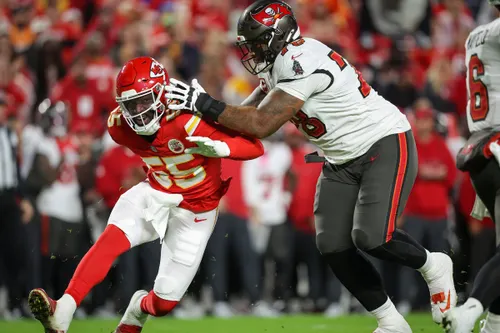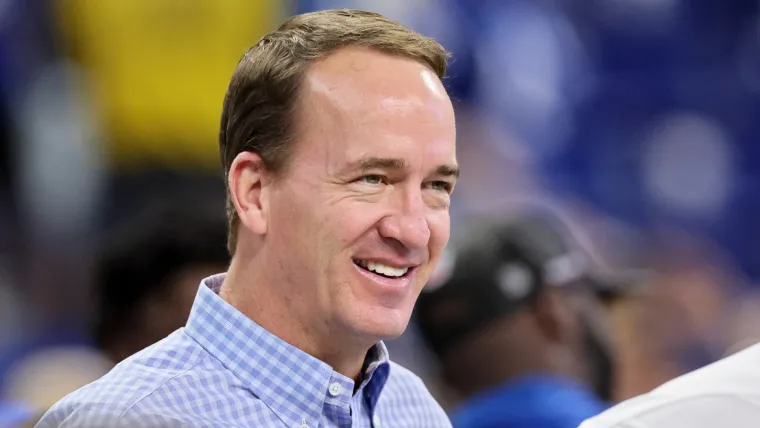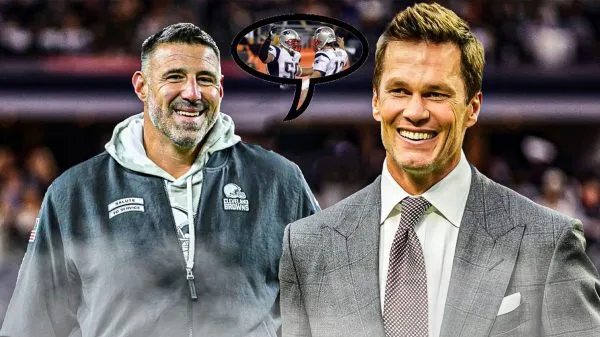In Tuscaloosa, the college football world is once again on high alert—and for good reason. Alabama’s recruiting machine, long known as the standard-bearer in the sport, is roaring at full throttle under new head coach Kalen DeBoer, drawing rave reviews not just from fans but even the sharpest voices in college football media.
Since stepping into one of the most pressure-packed roles in college athletics, DeBoer has proven that Alabama’s ability to attract elite talent hasn’t skipped a beat. In fact, if recent weeks are any indication, it might be accelerating.
Over the course of June alone, the Crimson Tide landed nine new commitments, eight of which came within a blistering two-week window. Of those pledges, several were five-star recruits, vaulting Alabama to the top of the five-star commitment leaderboard for the Class of 2026 and propelling them back into the national top 10 rankings for the first time under DeBoer’s tenure.
The magnitude of this recruiting stretch hasn’t gone unnoticed by anyone invested in the SEC arms race. On a recent edition of McElroy and Cubelic in the Morning, one of the sport’s most respected analysts, Paul Finebaum, went so far as to invoke the name of the architect of modern Alabama dominance—Nick Saban.

“Quite frankly, this is one of the great recruiting runs we’ve seen in some years,” Finebaum remarked during the live segment. “It almost feels like Nick Saban is running the ship again when it comes to recruiting because this is vintage Alabama recruiting.”
For Tide fans who were left uncertain about the program’s direction following Saban’s retirement, Finebaum’s assessment couldn’t be more validating. Alabama’s return to elite status on the recruiting trail signals not only stability but a potential resurgence of the dynasty.
“I think when we saw this transition two and a half years ago, a lot of people doubted Alabama could come back to this particular moment in time,” Finebaum continued. “But it is here, and I think it bodes extremely well for Alabama in the future.”
Indeed, doubts were plentiful when Saban—widely regarded as the greatest college football coach of all time—hung up his headset after 17 historic seasons in Tuscaloosa. The bar he set wasn’t merely high; it was nearly unattainable, with six national championships, countless SEC titles, and a recruiting empire that reshaped how college football operates.
Enter Kalen DeBoer, a coach with a sterling résumé but a relatively understated national profile compared to his legendary predecessor. DeBoer’s success at Washington, including a College Football Playoff National Championship appearance, made him an attractive candidate, but even his most optimistic supporters likely didn’t envision him restoring Alabama’s recruiting clout this quickly.
The numbers speak for themselves. With more five-star recruits committed than any other program in the country for the Class of 2026, Alabama is sending a clear message: The dynasty may look different, but the results remain eerily familiar.
The recent recruiting haul includes blue-chip prospects at key positions, from dominant offensive linemen to game-breaking receivers and future defensive anchors. DeBoer and his staff have showcased their ability to connect with elite high school talent, sell the vision of a new Alabama, and reinforce the program’s unparalleled history of developing players for the NFL.
Perhaps just as important as the quantity of recruits is the timing and momentum behind the commitments. In the cutthroat world of college football recruiting, perception and momentum often dictate long-term success. Alabama’s flurry of pledges has not only captured headlines but also reignited the belief among top prospects nationwide that Tuscaloosa remains the destination for those serious about winning championships and reaching the next level.
In an era of NIL deals, transfer portal movement, and ever-shifting program dynamics, Alabama’s ability to remain a recruiting powerhouse is a testament to the infrastructure Saban built and the adaptability DeBoer brings to the table. While no one can perfectly replicate Saban’s methodology, DeBoer is crafting his own blueprint—one that blends proven recruiting tactics with the modern demands of player empowerment and development.
This summer’s recruiting run underscores several key themes for the Crimson Tide:
First, Alabama is flexing its national reach. While historically dominant in the Southeast, the Tide’s recent commitments span coast to coast, reaffirming their brand’s appeal to prospects from all regions.
Second, the coaching staff’s emphasis on relationships is resonating. In speaking with recruits, many cite DeBoer’s genuine approach, player-first mentality, and clear development pathways as pivotal in their decisions. The message: Alabama under DeBoer offers continuity in excellence with a fresh perspective.
Third, the program’s infrastructure remains unmatched. From state-of-the-art facilities to a winning culture ingrained at every level, Alabama still provides the ideal environment for elite athletes to thrive. The pipeline to the NFL, a hallmark of the Saban era, remains a major draw for top talent.
For SEC rivals and national contenders alike, Alabama’s resurgence in recruiting sends a clear warning shot. The Crimson Tide aren’t fading quietly into the background of college football’s new landscape; they are reloading with purpose.
Finebaum’s comments, while high praise, also reflect a broader realization across the sport. Alabama’s dynasty isn’t solely a product of one man but an entire system, culture, and expectation of excellence that survives even as faces change on the sidelines.
Of course, recruiting victories are only one part of the equation. For DeBoer, translating these commitments into on-field success will ultimately define his legacy in Tuscaloosa. But history suggests that championship runs often begin with dominant recruiting classes, and the current trajectory positions Alabama squarely back in that conversation.
Looking ahead, the challenge for DeBoer is sustaining this momentum. In the SEC, where competition is fierce and the margin for error razor-thin, programs like Georgia, LSU, and Texas are relentless in their pursuit of talent. Alabama must continue to adapt, innovate, and close the deal with elite prospects.
Yet, for now, optimism reigns supreme among the Crimson Tide faithful. The doubts that accompanied Saban’s departure are steadily being replaced with belief—belief that Kalen DeBoer, in his own way, is restoring Alabama to its rightful place atop college football’s recruiting hierarchy.
The echoes of Finebaum’s assessment ring true: “It almost feels like Nick Saban is running the ship again.”
For Alabama fans, there may be no greater compliment—and no greater hope for what lies ahead.



